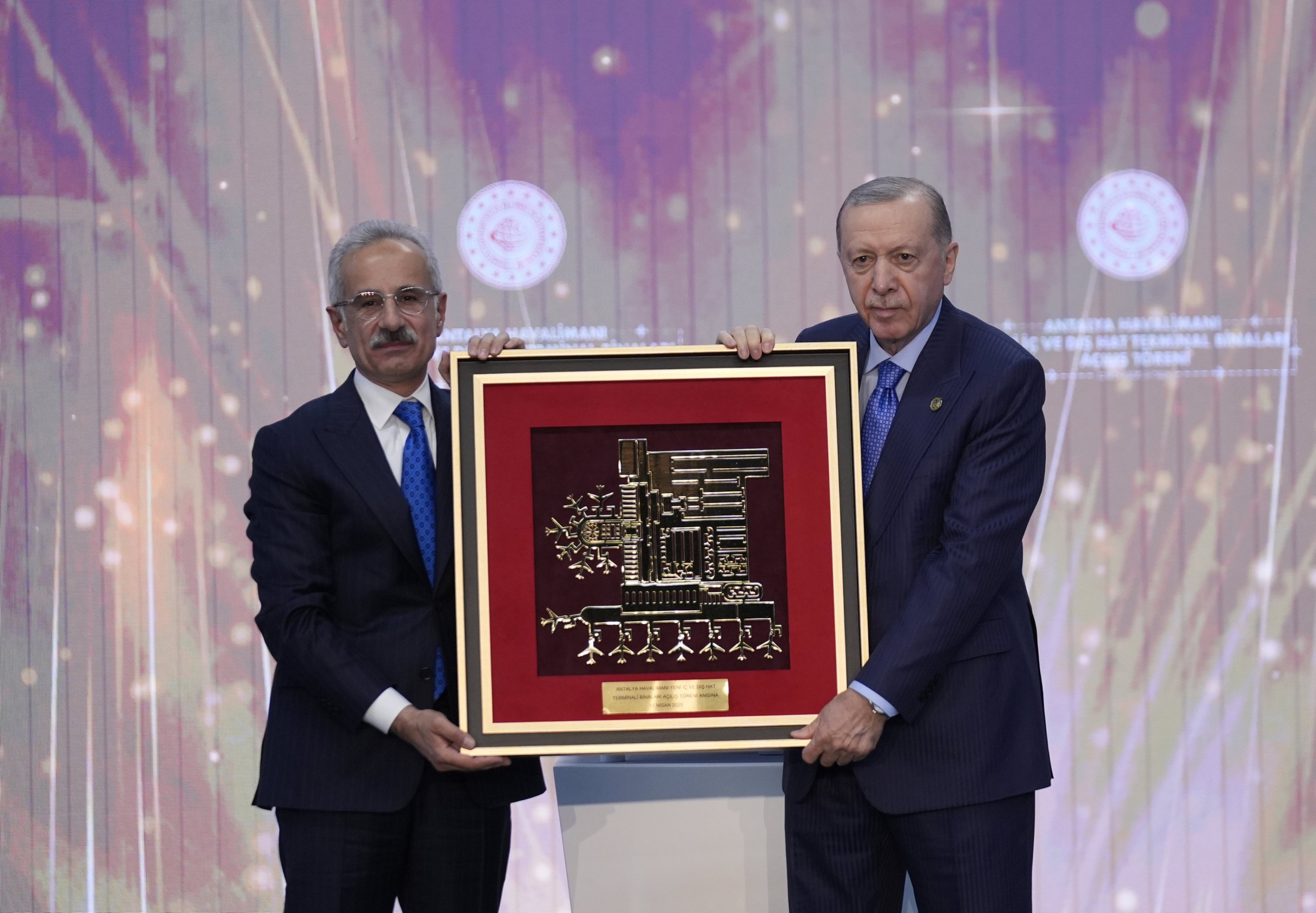© Turkuvaz Haberleşme ve Yayıncılık 2026
President Recep Tayyip Erdoğan Saturday inaugurated the newly expanded terminals at Antalya Airport, marking a significant milestone in Türkiye’s aviation infrastructure.
With an investment of approximately 927 million euros ($1.05 billion), this project has increased the airport’s capacity from 35 million to 82 million passengers, a leap that reflects both the country’s growing tourism sector and global aviation ambitions.
Erdoğan proudly stated, “With this project, carried out under a public-private partnership model, not a single penny was drawn from the state treasury.”
The new terminals, both for domestic and international flights, stand as a testament to Türkiye's commitment to improving its transportation infrastructure.
The expanded facilities, which include 224,000 square meters for the international terminal and 75,000 square meters for the domestic terminal, are poised to handle an influx of travelers, including an estimated 39.23 million passengers in 2024.
Erdoğan emphasized, “Antalya is a jewel of the Mediterranean, welcoming millions of local and foreign tourists every year. Our airport’s capacity has already exceeded 35 million passengers, serving 36 million last year. We are set to surpass 40 million this year.”
Looking ahead, Erdoğan shared that by 2029, the airport is expected to cater to 45 million passengers, with the new terminals positioned to handle the rising demand.
“With these new terminal buildings and supporting infrastructure, Antalya Airport now has the capacity to greet 82 million guests from around the world,” Erdoğan added.
Highlighting the project’s efficiency, Erdoğan noted that the government’s expenditure was nil, with the funding fully provided by the private sector. “This is a success story of public-private partnership,” he said.
In addition to the expanded terminals, the airport has increased its aircraft parking capacity, upgraded the VIP terminal, and added new service buildings, including a 5,000-square-meter DHMI office.
The new facilities further cement Antalya’s position as a key tourism and transit hub for international travelers.
“The investment generated from this project – 8.555 billion euros in rental income – reflects the long-term success of our strategic vision,” Erdoğan said. “It is a clear example of how we can utilize public resources efficiently while empowering the private sector to drive innovation and growth.”
Erdoğan also took the opportunity to tout Türkiye’s global aviation position, stating, “We are transforming Türkiye into one of the countries with the largest airspace coverage. From 26 active airports in 2002 to 58 today, we have created a vast network. We’ve raised Istanbul Airport to the second largest in Europe with a capacity of 80.1 million passengers in 2024.”
However, Erdoğan didn’t shy away from commenting on the West's attitude toward Türkiye’s advancements.
“While we focus on progressing and modernizing our country, some in the West are more interested in sowing discord. We will not let their opposition to our development hold us back,” he said. “Türkiye’s growth will continue, regardless of foreign influence or political resistance.”
Turning to domestic politics, Erdoğan criticized the opposition for not understanding his administration’s vision. "Those who complain about our country to foreign media cannot understand the scale of this project. The vision to elevate our nation is far beyond their grasp," he said. "We are committed to working for this country, regardless of the petty political disputes. With the support of our people, we will continue to deliver on our promises."
Transport and Infrastructure Minister Abdulkadir Uraloğlu echoed the optimism, stating, “Since 2002, we’ve seen Türkiye’s aviation sector rise from 26 airports to 58. We now fly to 352 destinations across 132 countries.”

He added that in 2024, Türkiye will exceed 240 million passengers, a record for the nation.
